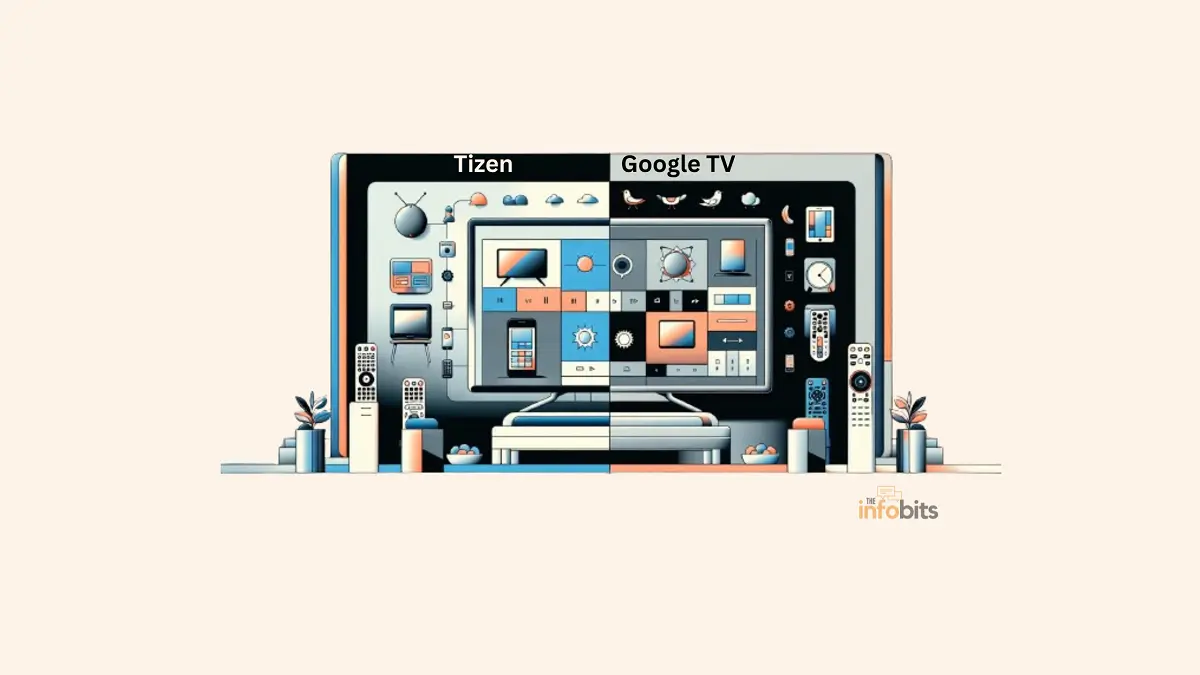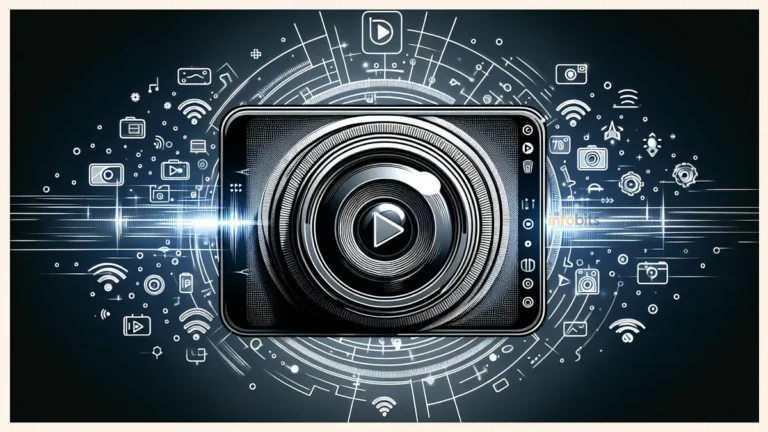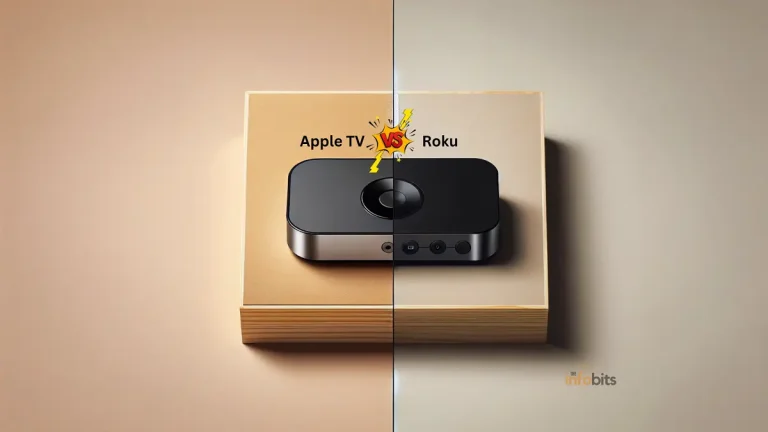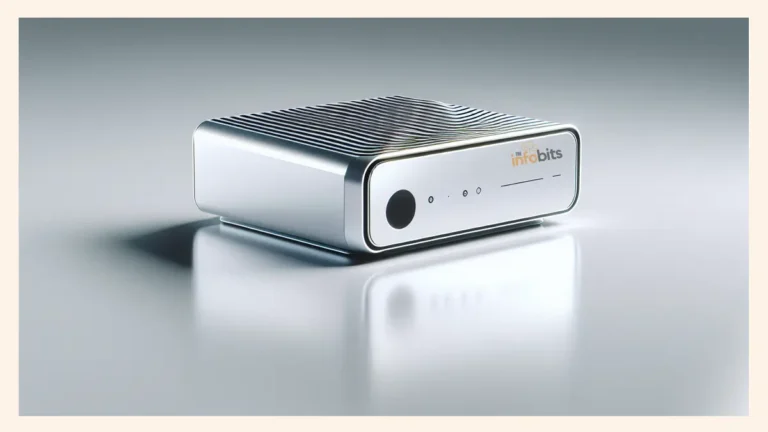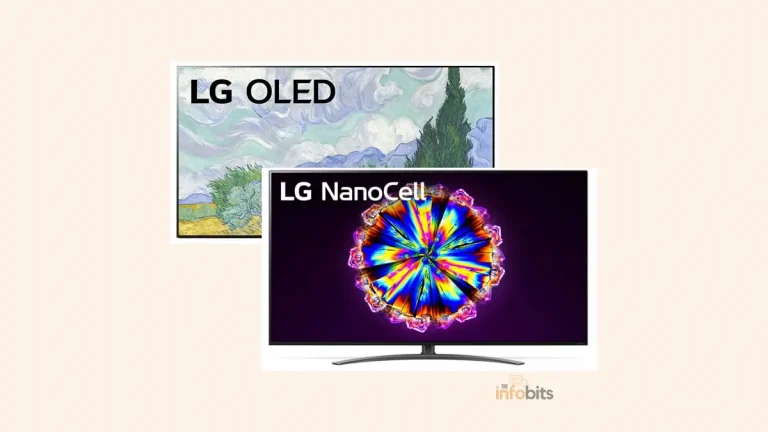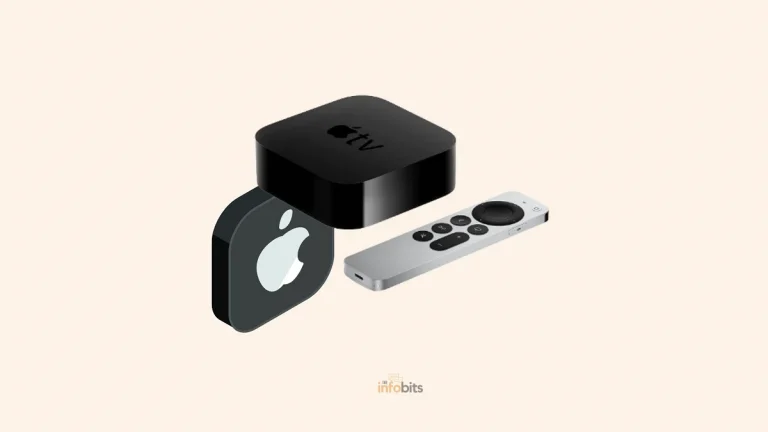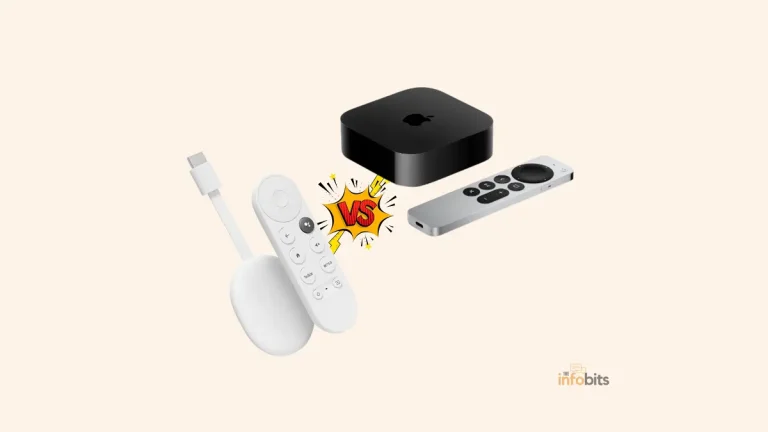Tizen vs Google TV: Which Platform Takes the Lead?
In the ever-changing world of smart TV operating systems, Tizen and Google TV stand out as two significant platforms with different features and user experiences.
While both aim to improve our TV viewing experience, they have distinct features, strengths, and ecosystems.
Tizen, supported by Samsung, and Google TV, from the internet giant Google, have competitive ideas and approaches to how a smart TV should operate.
The article digs into the comparison of Tizen vs Google TV, detailing their features, user experience, app ecosystems, and much more to help readers make an informed decision about which platform is best for their requirements.
Overview of Tizen and Google TV
Definition and Introduction to Tizen
Tizen is an open-source, Linux-based operating system developed by the Linux Foundation and supported by technology industry giants, most notably Samsung.
Tizen is intended to be adaptable, powering a diverse variety of devices, including smart TVs, wearables, smartphones, and smart home appliances.
Tizen provides a user-friendly interface for smart TVs and is well-known for its rapid navigation, streaming service integration, and support for a wide range of applications.
Tizen, which is Samsung’s operating system of choice for its Smart TVs, has a considerable market share in the Smart TV arena, making it an important player to consider.
The platform’s ability to run on low-power devices while maintaining smooth performance has earned it a reputation for efficiency and adaptability.
Tizen also stresses security through the use of Tizen’s security framework, which prioritizes user data and privacy.
Definition and Introduction to Google TV
Google TV is a smart TV platform from Google that expands on the groundwork laid by its predecessor, Android TV.
Google TV, which launched in 2020, provides a new approach to content discovery and personalization by integrating Google’s search and recommendation algorithms.
The interface is built around the idea of making it easy for users to access content, with a heavy emphasis on personalized suggestions and the ability to collect content from several streaming providers in one place.
Google TV is based on the idea of providing a seamless, integrated experience with other Google services such as Google Assistant, Google Photos, and YouTube.
For consumers who are deeply involved in the Google ecosystem, this provides extra ease, making it easier to switch between watching content, managing smart home devices, and seeking information, all from the comfort of their televisions.
Related: WebOS vs Tizen: Which One Is Right for Your TV?
Unique Features of Tizen
Interface and User Experience in Tizen
The Tizen Smart TV interface is noted for its clear and adaptable design, which promotes accessibility and usability.
Samsung has invested in making navigation more intuitive, intending to reduce the amount of time spent searching for information or settings.
The Tizen UI has a customizable bottom menu bar where users may pin their favorite apps for easy access.
Furthermore, the platform integrates with Samsung’s ecosystem, including interoperability with Samsung SmartThings for smart home control.
Tizen’s multi-tasking features let users swiftly switch between programs or services without encountering latency or interruption.
One of Tizen’s key selling points is its simplified user experience, which is designed to keep viewers interested and happy with the performance of their smart TV.
App Availability and Compatibility
Tizen features a large app store that includes a wide range of applications, from popular streaming services to games. Major content providers such as Netflix, Hulu, Amazon Prime Video, and others are easily accessible on Tizen-powered TVs.
Samsung has also pushed developers to create Tizen-specific apps, boosting the platform’s app market.
However, one possible disadvantage is that Tizen’s app selection may be less comprehensive than that of the Google TV platform, which might hinder consumers looking for a wide range of specialized or less mainstream applications.
Despite this, app compatibility with Tizen is typically strong, with many developers tuning their applications to run seamlessly with Tizen’s system design. This ensures that apps function smoothly and offer a satisfying user experience.
Related: Apple TV vs Google TV: Which is right for you?
Personalization and Customization
Tizen users may customize their viewing experience with features such as a global guide and ambient mode.
The global guide selects content depending on the user’s watching preferences, while ambient mode allows the TV to show art or private photos when not in use, transforming it into a piece of décor.
These features demonstrate Tizen’s dedication to becoming more than simply a content platform but also an integrated component of the living space.
Tizen excels in customization, with the ability to rearrange programs and settings to fit user preferences.
This allows customers to customize their smart TV interface based on their daily habits and needs, resulting in a more personalized and efficient viewing experience.
Unique Features of Google TV
Interface and User Experience in Google TV
Google TV distinguishes itself with a UI that prioritizes content discovery first and foremost.
The platform’s architecture emphasizes content aggregation across several subscriptions and services, with a ‘For You’ tab that uses Google’s powerful recommendation algorithms to propose episodes and movies.
The interface is simple and promotes visual features like movie posters and thumbnails, allowing users to easily navigate through an extensive collection of content.
The inclusion of Google Assistant, which allows for voice search and control, enhances the user experience by adding ease and accessibility.
The Google TV interface is more than just aesthetically pleasing and practical; it also enables deeper engagement with content and a more customized TV viewing experience.
App Availability and Compatibility
As an extension of Android TV, Google TV has access to a wide range of apps from the Google Play Store.
Users may access a wide choice of applications and games, from popular streaming services to utility apps, making it an appealing platform for anyone looking for a diverse selection.
Because Android apps are compatible, most developers are already familiar with the ecosystem, which might simplify app creation and optimization for Google TV.
Because Google TV runs on the Android operating system, it receives frequent updates and support from developers, ensuring that the platform is up to speed with the most recent features and security fixes.
Related: Future-Proofing Your TV: WebOS vs Google TV Comparison Guide
Integration with Google Applications and Services
One of the most notable characteristics of Google TV is its seamless interaction with other Google services.
Users may browse Google Photos, check their calendars, and operate their Nest smart devices directly from their televisions.
This integrated ecosystem transforms the TV into more than simply an entertainment screen; it also serves as a portal for personal content and smart home control.
The addition of Google Assistant adds voice commands and smart capabilities, including the ability to search across applications, ask questions, and manage smart home devices via Google TV.
The introduction of Google’s AI technology into the platform expands its usefulness and provides consumers with a new layer of engagement with their smart TVs.
Comparative Analysis: Tizen VS Google TV
Performance Comparison
In terms of performance, both Tizen and Google TV strive to deliver a seamless and responsive user experience.
Tizen’s optimized performance for Samsung hardware results in a quick and efficient interface with less latency while browsing menus or switching apps.
Google TV, which uses the power of Android, also provides seamless performance, although this depends on the hardware it is operating on.
As a result, the real performance may vary significantly depending on the manufacturer’s hardware implementation.
However, both systems have been praised for their capacity to manage numerous tasks while maintaining excellent performance even in demanding applications.
The decision between the two may be based on personal preference or brand loyalty.
Compatibility Comparison with Different Devices
Tizen, which is largely used in Samsung smart TVs and gadgets, has a relatively restricted compatibility range outside of Samsung’s product line.
It’s designed expressly for the hardware it runs on, which might result in a more reliable and optimized experience for Samsung devices, but less adaptability in general.
Google TV, which is based on Android, is supposed to be more versatile and is available on many manufacturers’ devices, including Sony and TCL, indicating a greater compatibility range.
This increased connectivity with other devices makes Google TV a more versatile alternative for those who do not want to be limited to Samsung’s ecosystem.
However, Tizen’s close integration with Samsung products may provide a more fluid and consistent experience for individuals who already possess Samsung devices.
Comparative Analysis of User Reviews and Ratings
Tizen’s user-friendly design and durability are frequently highlighted in user evaluations and ratings, as is its consistent performance across Samsung devices.
Tizen users enjoy Samsung’s regular upgrades and enhancements, which help keep the platform current and safe.
On the other hand, some customers yearn for a more diverse app selection, akin to what is offered on other platforms.
Google TV, however, is praised for its connection with Google services and simplicity of content finding. User feedback regularly compliments the voice search capabilities and tailored recommendations.
Critics of Google TV occasionally point to difficulties with app performance, which varies depending on the device manufacturer, while others voice worries about privacy due to the connection with multiple Google services.
Choosing the Right Platform: Tizen or Google TV?
Considerations for Consumers
Consumers may choose between Tizen and Google TV based on criteria like brand loyalty, the importance of a diverse app ecosystem, and the need for a personalized and seamless watching experience.
Tizen may be the preferable alternative for people who are entrenched in the Samsung ecosystem, value a simple interface, and want consistent performance.
Consumers who emphasize content discovery, appreciate interaction with Google services, and desire a diverse set of applications may prefer Google TV.
It is also important to evaluate the sort of material consumed as well as the devices and services utilized in the house. The selection may be based on which platform fits best with the user’s lifestyle and technological preferences.
Considerations for Developers
When selecting an app development platform, developers should examine its potential reach, ease of development, and revenue prospects.
Tizen’s platform may provide a more narrow market with less competition, but it needs adaptation to the Tizen SDK and app marketplace.
Google TV, being part of the Android ecosystem, has a large user base, a familiar development environment, and easier program submission and update processes.
Finally, developers must compare the benefits of accessing a specific Samsung audience compared to the larger but more competitive Android environment represented by Google TV.
Wrapping Up
Finally, Tizen and Google TV provide two separate approaches to enjoying smart TV capabilities, each with its own set of advantages and disadvantages.
Tizen stands out for its efficiency, integration with Samsung devices, and user-friendly interface, making it excellent for existing Samsung ecosystem users.
Google TV stands out for its content discovery, huge app library, and connectivity with Google services, making it ideal for people looking for a smart TV experience that goes beyond regular TV viewing.
As both platforms expand and innovate, the decision between them will most certainly remain a question of personal preference, influenced by each user’s particular demands and habits.
Whether it’s the comfort of Tizen’s tailored interface or Google TV’s diverse environment, the future of smart TV technology seems promising.
Please share this article about the Tizen vs Google TV comparison with your friends and relatives if you find it useful.
We also ask that you bookmark this page for future reference, as we are constantly updating our articles with new information.
Sign up for our free newsletter as well to receive fresh information immediately in your inbox and keep technically up to date.

